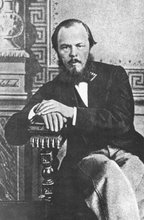
Having accepted the division between those who might live, and those who would surely die, in
The Drowned and the Saved Levi writes about God, His place in Auschwitz. He speaks of a fellow prisoner, Hans Mayer, alias Jean Amery, an educated man, a philosopher, who entered Auschwitz as an agnostic, and who left a believer. Primo Levi, on the other hand, retains his view that no God can exist in such a charnel-house. He describes one time when he was moved to pray, but stops himself because "otherwise, were I to survive, I would have to be ashamed of it" (146), commenting, "a prayer under these conditions would have been not only absurd (what rights could I claim? and from whom?) but blasphemous, obscene, laden with the greatest impiety." He and Amery did observe that in extraordinary circumstances and "in the everyday grind" of survival, "believers did better . . . Their universe was vaster than ours, more extended in space and time, above all more comprehensible: they had a key point

of leverage, a millennial tomorrow so that there might be a sense of sacrificing themselves, a place in heaven or on earth where justice and compassion had won, or would win,in a perhaps remote but certain future: Moscow, or the celestial or terrestrial Jerusalem. Their hunger was different than ours. It was a divine punishment or expiation, or votive offering . . . Sorrow, in them or around them, was decipherable and therefore did not overflow into despair. They looked at us (unbelievers) with commiseration, at times with contempt; some of them, in the intervals of our labor, tried to evangelize us. But how can you, a nonbeliever, fabricate for yourself or accept on the spot an "opportune" faith only because it is opportune?"
 Having accepted the division between those who might live, and those who would surely die, in The Drowned and the Saved Levi writes about God, His place in Auschwitz. He speaks of a fellow prisoner, Hans Mayer, alias Jean Amery, an educated man, a philosopher, who entered Auschwitz as an agnostic, and who left a believer. Primo Levi, on the other hand, retains his view that no God can exist in such a charnel-house. He describes one time when he was moved to pray, but stops himself because "otherwise, were I to survive, I would have to be ashamed of it" (146), commenting, "a prayer under these conditions would have been not only absurd (what rights could I claim? and from whom?) but blasphemous, obscene, laden with the greatest impiety." He and Amery did observe that in extraordinary circumstances and "in the everyday grind" of survival, "believers did better . . . Their universe was vaster than ours, more extended in space and time, above all more comprehensible: they had a key point
Having accepted the division between those who might live, and those who would surely die, in The Drowned and the Saved Levi writes about God, His place in Auschwitz. He speaks of a fellow prisoner, Hans Mayer, alias Jean Amery, an educated man, a philosopher, who entered Auschwitz as an agnostic, and who left a believer. Primo Levi, on the other hand, retains his view that no God can exist in such a charnel-house. He describes one time when he was moved to pray, but stops himself because "otherwise, were I to survive, I would have to be ashamed of it" (146), commenting, "a prayer under these conditions would have been not only absurd (what rights could I claim? and from whom?) but blasphemous, obscene, laden with the greatest impiety." He and Amery did observe that in extraordinary circumstances and "in the everyday grind" of survival, "believers did better . . . Their universe was vaster than ours, more extended in space and time, above all more comprehensible: they had a key point  of leverage, a millennial tomorrow so that there might be a sense of sacrificing themselves, a place in heaven or on earth where justice and compassion had won, or would win,in a perhaps remote but certain future: Moscow, or the celestial or terrestrial Jerusalem. Their hunger was different than ours. It was a divine punishment or expiation, or votive offering . . . Sorrow, in them or around them, was decipherable and therefore did not overflow into despair. They looked at us (unbelievers) with commiseration, at times with contempt; some of them, in the intervals of our labor, tried to evangelize us. But how can you, a nonbeliever, fabricate for yourself or accept on the spot an "opportune" faith only because it is opportune?"
of leverage, a millennial tomorrow so that there might be a sense of sacrificing themselves, a place in heaven or on earth where justice and compassion had won, or would win,in a perhaps remote but certain future: Moscow, or the celestial or terrestrial Jerusalem. Their hunger was different than ours. It was a divine punishment or expiation, or votive offering . . . Sorrow, in them or around them, was decipherable and therefore did not overflow into despair. They looked at us (unbelievers) with commiseration, at times with contempt; some of them, in the intervals of our labor, tried to evangelize us. But how can you, a nonbeliever, fabricate for yourself or accept on the spot an "opportune" faith only because it is opportune?"
